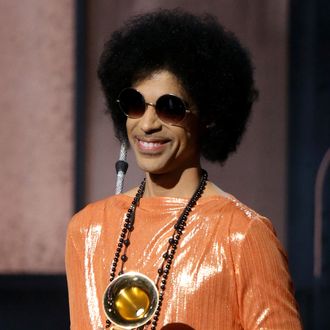
In 2007, a woman named Stephanie Lenz uploaded a 29-second video to YouTube of her 18-month-old son jamming out to PrinceÔÇÖs ÔÇ£LetÔÇÖs Go CrazyÔÇØ in the kitchen. That kid will probably hate her for it by the time he enters middle school because the video now has 1.3 million views and counting. The problem? One of those viewers happened to be Universal Music Group ÔÇö the label that used to own the rights to PrinceÔÇÖs music ÔÇö which ordered YouTube to take down the video shortly after it went viral, citing copyright infringement. ItÔÇÖs a common practice on YouTube to have labels yank their music from videos ÔÇö even Michelle Phan, who has close to 8 million subscribers, was sued last year for allegedly using copyrighted music on her channel. Except, in a surprise turn of events, Lenz and her son may have actually just become one of the first YouTubers to fight back against a label and score a landmark victory.
On Monday, in response to LenzÔÇÖs counter-motion, a federal appeals court found that Lenz can legally sue Universal for libel. In her appeal, Lenz argued that her video fit the criteria for fair use under copyright law, and that Universal failed to prove the video didnÔÇÖt do so before issuing its DCMA takedown to YouTube. The DCMA requires that rights-holders first consider fair use before ordering takedowns, but the process tends to be more automated, especially for the major labels. The court has unanimously sided with Lenz: It found that issues of copyright infringement on the internet must be treated individually, with rights-holders first determining whether or not a video (or any other content) violates fair use before it can have the video removed. If Universal ÔÇ£knowingly misrepresentedÔÇØ the DCMA by failing to check LenzÔÇÖs video for fair use, then the court says it can be held liable for damages and the case can now move to trial.
So what was once murky legal water, especially for parents innocuously sharing home videos of their kids with popular songs in the background on the internet, now has a legal precedent. It could potentially mean fewer mass video takedowns on YouTube and a lot more paperwork for labels (poor interns on their legal team), and itÔÇÖs all thanks to one dancing baby and his momÔÇÖs nearly decade-old genius plan to turn him on to the Purple One at a young age. Of course, Lenz now says her 9-year-old son is more a Mozart fan than a Prince lover, because kids are eternally ungrateful.


